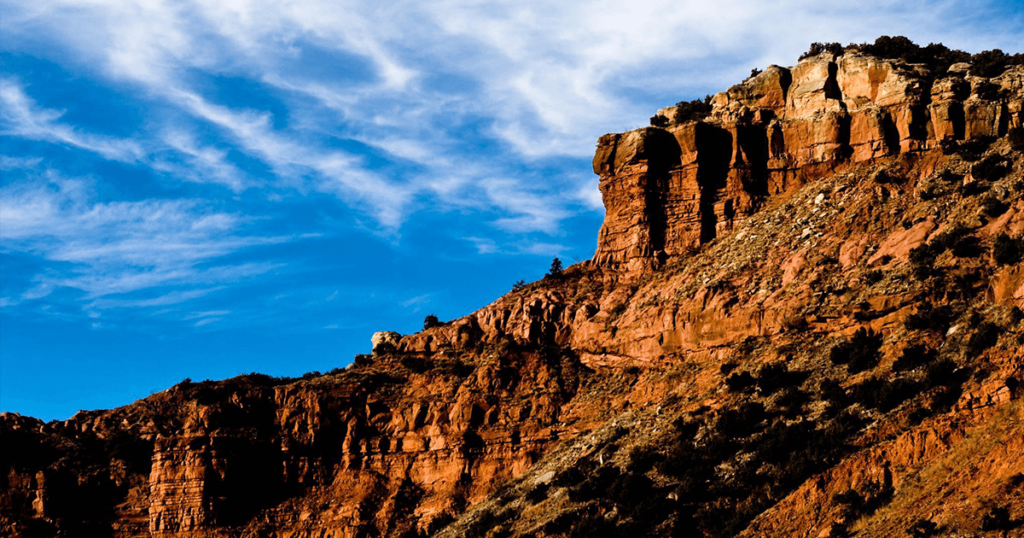
I’m from Alabama, and I was bankrupt when I got a new teaching job in West Texas. After my younger daughter joined me there, and I could no longer pay the rent on our apartment, a student found us an abandoned farmhouse on the edge of a canyon, 50 miles from the university.
Our water pipes often froze, and we occasionally had rattlesnakes in the living room, scorpions that fell onto us from the ceiling while we slept, and propane leaks in the kitchen that could have blown us to smithereens.
These were adventures, to be sure, but every one of them was worth the silence.
We never heard traffic on the highway many miles away. We never heard train whistles or the clanging of machinery in an industrial plant. We occasionally heard a tractor or cotton stripper, but since most of the land around us was either mesquite thicket, pasture, or golden wheat, these sounds were only momentary distractions.
Sometimes it was so quiet we thought we could hear electricity coursing through the power line that ran alongside the dirt road. Otherwise, there was only wind, occasional thunder, the bellow of a distant bull, or the sound of birds.
There were plenty of birds. There were meadowlarks and killdeer in the morning, quail and scissor-tailed flycatchers at noon, gray hawks as the sun started to sink, and wild turkeys along the rivulet in the canyon almost any time of day. At sunset, we’d walk to the lip of the canyon to listen to the coyotes’ unearthly song. Then as dusk turned black, the nighthawks dove and ricocheted back into the sky, and the great horned owl would call from the old telegraph pole by the canyon to his mate far away in the dark.
As the seasons changed, among the migrating birds would be Mississippi kites, mountain bluebirds, red-tailed hawks, and the sand hill cranes that soared so high in February that we often couldn’t make them out, only know them by their gurgling call.
The mammals were more stay-at-home, of course—the prairie dogs, jackrabbits, gray foxes, and mule deer, which we’d see when we strode out on November mornings to take our first walk of the day. The deer would still have frost on their backs, and they would look at us as though we were the living statues instead of them.
Always, always, we watched the night sky with its wheeling constellations, and the Milky Way stretched out full-length and terrifying. When I was a child in Birmingham, I rarely even saw the night sky because of low-hung clouds or the haze from the steel mills.
But we got used to the sky on the Caprock. We became part of it. It was ours. Day or night, our home there was in the sky.
I’d always envisioned paradise as a place like San Jose de la Montaña in Costa Rica, where I’d holed up to clear my head during the Salvadoran civil war, or in a snug cabin after a fresh snowfall among the Owyhee Mountains in southwest Idaho, the place I’d wanted to retire.
I never would have believed I’d have to go bankrupt and find paradise with my daughter in an abandoned farmhouse on the flattest place on earth. West Texas. Who’d have picked that out of a tourist brochure?
It’s not that we found ourselves in paradise, though. It’s that paradise was where we found our selves.

